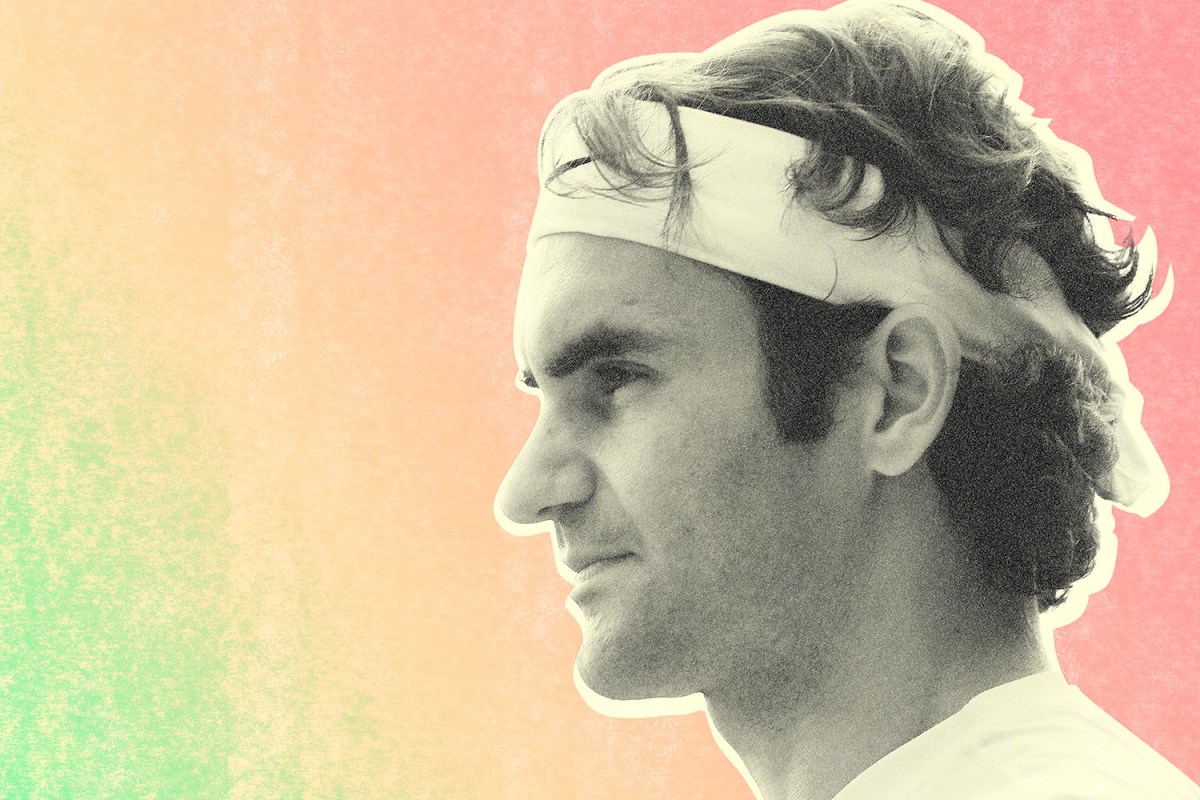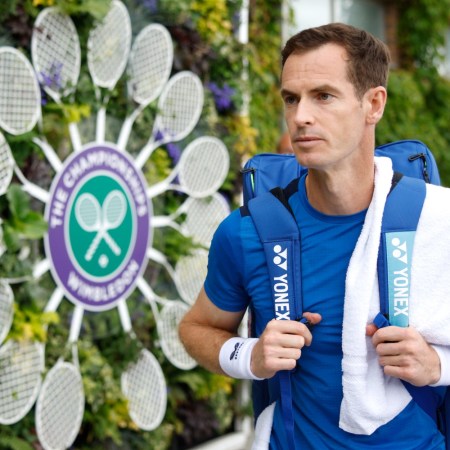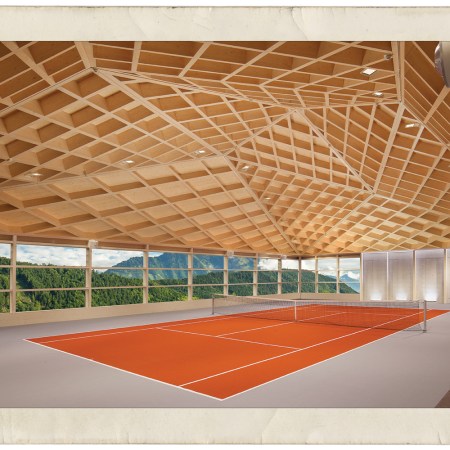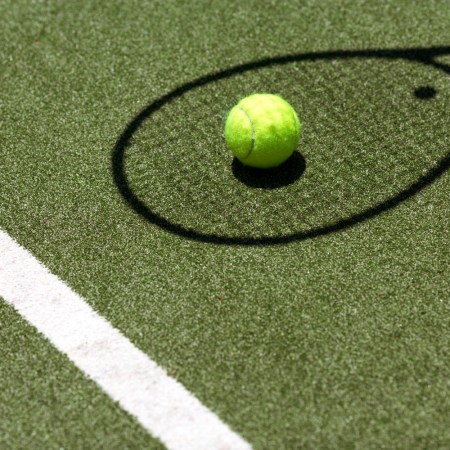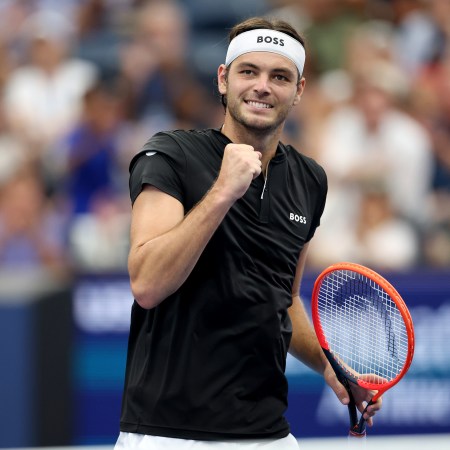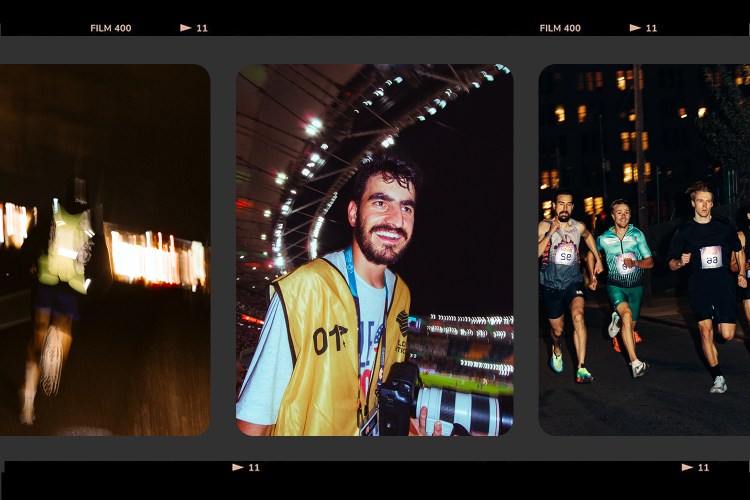It might not seem like it, given that he finished 2019 as the No. 3-ranked men’s tennis player in the world while winning four titles and losing an epic Wimbledon final to Novak Djokovic, but Roger Federer is finally ceding some ground to his toughest opponent of all: time.
The Swiss star, 38, enters his 23rd year as a pro in 2020 — longer than 2019 ATP Finals champion Stefanos Tsitsipas has been alive. His first match of the season comes Monday, when he’ll face American Steve Johnson at the Australian Open in Melbourne. He skipped the inaugural ATP Cup, which kicked off the 2020 season, but says he intends to play both the French Open (where he sat out in 2017 and 2018) and the Summer Olympics.
Though Federer will look to cut back his playing schedule to account for more recovery time, his off-court activities promise to keep him busy: this year, he’ll make a return to the ATP Players Council (where he served as president from 2008-2014) and continues to be heavily involved in the successful Laver Cup competition, started by his management company, Team8.
These commitments, among others, suggest that the Swissman is positioning himself for life after tennis — at least as a player. An impending second act in the public eye seems inevitable; so what, exactly, comes next?
“The Laver Cup has taught us a lot about who Roger Federer is beyond the court,” says TENNIS Magazine editor Nina Pantic. “He’s embraced being the biggest driver behind what has been the most entertaining new addition to the game. It’s unlikely that anything backed by Federer would fail, but he still had to stick his neck out to add something totally unexpected to the schedule.”
The Laver Cup pits two squads — “Team Europe,” which has featured Federer, and in alternating years, Djokovic and Nadal, and “Team World” — against each other in a Ryder Cup-style competition over the course of a weekend. Sensing the need for a new type of men’s tournament as criticism of the Davis Cup has increased over the years, Federer made his move. The impact of the Laver Cup has been far-reaching: the 120-year-old Davis Cup made significant alterations to its format in 2019, limiting the knockout stages of the tournament to a single week in November, during which Federer contested a series of exhibition matches across South America.
It appears right now that Laver Cup is his focus as far as team play goes, and it’s expected that the others near the top of the sport will continue to join him. “Most crucial of all, he’s been able to recruit the best players in the game each year,” Pantic said.
This all suggests that Federer wants to leave an even greater mark on his sport than breaking records, and that he has the awareness to realize he’ll have an easier time getting it started while he’s still playing. “Starting the Laver Cup this late in his career may seem like he’s just trying to segue into a retirement plan, but it’s much bigger than that, because that alone won’t sustain him anyway,” she added.
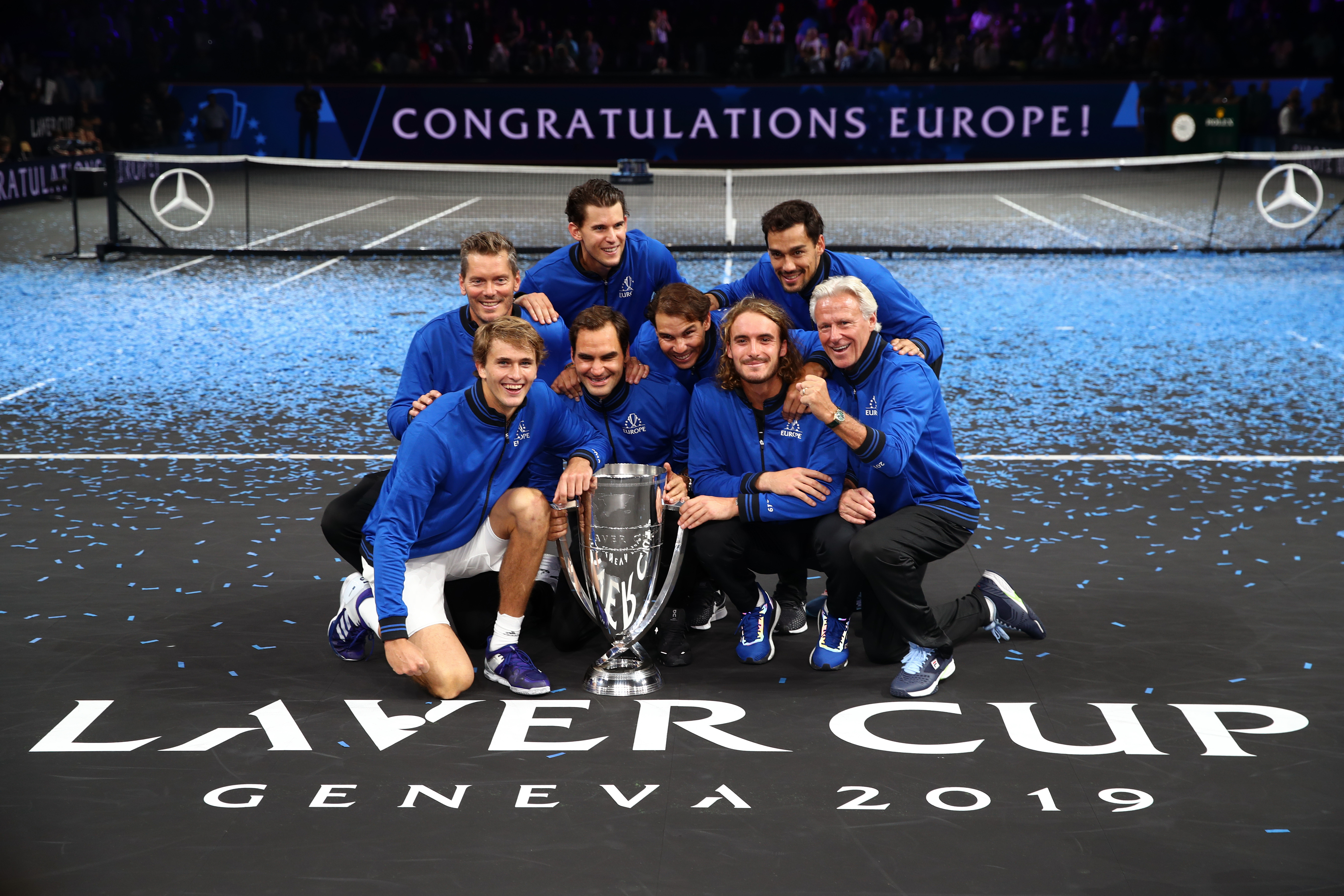
Beginning something off the court while still competing and training as a professional isn’t something that’s reserved for arguably the greatest tennis player of all time. For the past eight months, Noah Rubin has seen Behind the Racquet, the Instagram account he created to give observers of the sport insight into the lives of his peers on the ATP and WTA tours, continue to grow and garner mainstream media attention. The American has found the work on Behind the Racquet to be personally beneficial to his own tennis, and feels that it offers a service to the players who’ve participated, as well as the fans who follow it. While he might currently be ranked 214 in the world, the 23-year-old is determined to use what voice he has — and encourages others to do so, too.
“I do believe that there is immense work ethic among these tennis players, but at the same time, I think there’s a little bit of laziness,” he said. “I think they feel that there is no need to kind of advance things outside of the tennis court. I also don’t think that they understand really what it means to use their platform. I’ve been outspoken about a lot of the issues within the tennis world, but the players are definitely a reason that tennis is the way it is.”
In regard to Federer, Rubin feels that once he does retire, he could have an impact on issues affecting the professional men’s tour — if he decides to do so. “Will he take true time out of his years once he’s passed tennis to make sure tennis ends up growing and not dying out? I want to be hopeful and say yes, but you never know.”
“There’s been multiple times where [players have elected not to remain active], and I can’t fault players for not doing it. It is a disservice, but at the same time, that’s their choice,” Rubin said. “If they feel they’ve given enough to tennis, they’re doing what they can, now they’re just tired and want to get out of it, you know, we can’t force them. But I do think we need [it], especially Federer, who’s transcended tennis like never before, to step up even after he takes a break. After that, step up and let’s try to grow tennis. He’s obviously a prominent voice.”
After tennis, Pantic says, the business world will also be a natural fit for Federer, since he’ll be well-positioned financially to invest and grow a company. She also acknowledges the impact that he can have as far as making effective change within professional tennis, noting his personal attributes and his status on the global front.
“The best thing about Federer is how humble he is: He never makes you feel like you’re wasting his time. That trait will be huge for players asking him to support them in the future, and big changes on tour need to be player-driven,” she said. “Once he has the time to focus more on the backend issues in the sport, he’ll be able to make a greater impact, because there won’t be any excuses and there won’t even be any other priorities. He’s not God, it won’t be a simple fix, but it’s hard to imagine him abandoning the tour and not trying to create improvements for the next generation.”
“These kind of athletes come around once every 10, 20 years,” Rubin said. “You put him on the level of a Michael Jordan. You put him on the level of a Messi. These are the people that through their work and efforts in their sport, and through their efforts off the court and off the field, you just can’t compare to anybody else.
“I almost feel like with the life Federer has had, the life he’s gotten from tennis — and it’s probably not my place to say, but I’m going to say it anyway — I feel like it’s his responsibility to try to further the sport … even more than he has,” he added.
“That’s a tough thing to say, but that’s the responsibility of being Roger Federer.”
Whether you’re looking to get into shape, or just get out of a funk, The Charge has got you covered. Sign up for our new wellness newsletter today.
